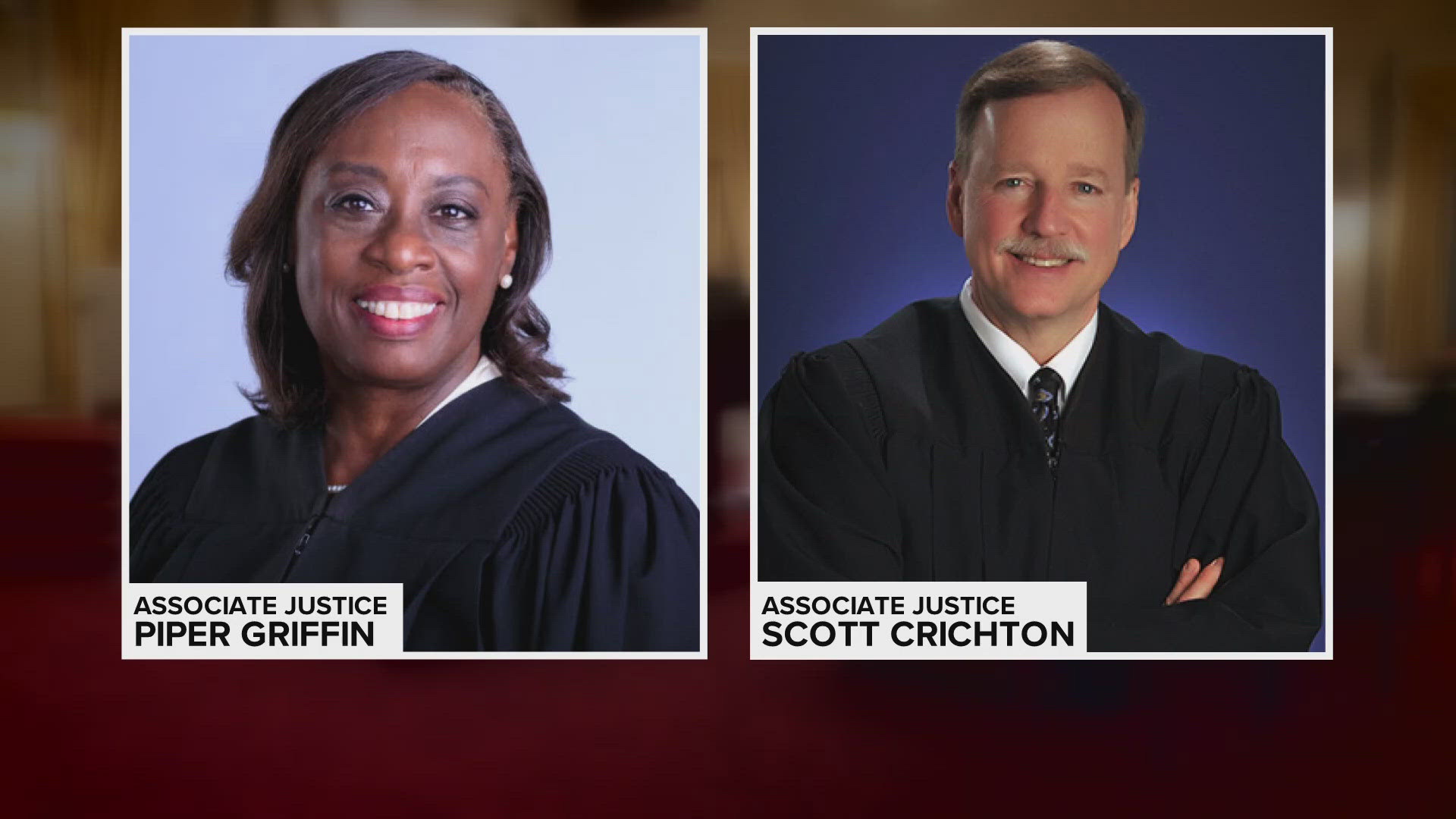NEW ORLEANS — Weeks after the Roman Catholic archdiocese of New Orleans was identified as the subject of a child sex-trafficking investigation, the Louisiana state supreme court has agreed to reconsider its decision to strike down a law that had allowed victims to file civil lawsuits over long-ago molestation.
Five of the court’s justices voted in favor of rehearing a case that produced a 4-3 ruling in March, devastating survivors of the state’s decades-old clergy molestation scandal. The judges voting for a rare rehearing: Chief Justice John Weimer and Justices Scott Crichton, William Crain, Jay McCallum and Piper Griffin.
Griffin and Crichton in March had formed part of the majority that struck down the so-called lookback law. But they then signaled their wish to reconsider their vote by helping grant only the second out of 19 rehearing requests since the start of 2023.
Justices Jefferson Davis Hughes III and James Genovese dissented from the majority, with the former issuing searing, written reasons that started off with a quote from the George Orwell novel Animal Farm.
“All animals are equal, but some animals are more equal than others,” Hughes’ dissent read, an apparent allusion to the fact that the decision in March gave abusers and their enablers the permanent right to no longer be sued for damages once the original deadline to do so had lapsed.
“Adult rape victims? Holocaust survivors? Descendants of the enslaved? Which of these shall we favor?”
Hughes went on to argue that “civilizations have provided time limits on legal claims as an essential element of fairness” since the days of the Code of Hammurabi in Mesopotamia in about 1750 BC.
“Special interest exceptions are anathema to the broader and more important concept of justice. Equal protection means equal.
“Some victims of crime have teams of lawyers that proclaim, ‘The sky’s the limit.’ Some die in the dark. Pray for them all.”
Hughes’ discomfort with revisiting March’s decision is likely to mean little to the attorneys for the plaintiff at the center of the case, lawyers Richard Trahant, Soren Giselson and John Denenea.
“This is a great day for child sexual abuse survivors and the children of Louisiana,” a statement from Trahant, Giselson, Denenea, Kevin Duck and Cle Simon said. “It is a bad day for pedophiles and those who protect them. We commend the two justices who decided to give this issue another look. Good judges sometimes change their minds.”
Back in January, they had argued the court should support a law passed unanimously in the Louisiana legislature in 2021 and signed into law by then-governor John Bel Edwards. Another unanimous legislature passed another law in 2022 to underline its intent that all claims, no matter how old, could be filed until June 2024.
Edwards’ successor, former attorney general Jeff Landry, supported the law. And so has Landry’s successor as attorney general, Liz Murrill, who filed a brief in March urging the state’s high court to reconsider its decision.
“In a victory for child victims of sexual abuse, I’m pleased that the Louisiana Supreme Court granted our application for a rehearing. This was the right decision – as the bill passed unanimously through the State Legislature and should be the law here in Louisiana,” Murrill said in a statement. “I’ll always defend victims of sexual abuse, and I look forward to the next steps at the Louisiana Supreme Court.”
In a phone interview, Murrill warned that they haven't won the case yet. They still must file supplemental briefs to the court by May 20 and there will not be oral arguments like there were in January.
The Roman Catholic diocese of Lafayette had requested the ruling now under reconsideration. The organization had been sued over allegations that a priest in the Acadiana region molested several children between 1971 and 1979.
Attorneys for the diocese maintained it was unconstitutional that the lookback law in question eliminated deadlines for old claims, which was done to recognize scientific research that found the average victim doesn’t come forward until that person is 52 years old.
The church contended it had a vested right not to be sued once the original deadline to file a lawsuit had passed. That deadline has moved back over the years, from just one year after the abuse occurred in the 1960s and 70s to longer time frames after a child became an adult, starting in the 1990s.
The 2021 law not only granted a three-year period to file new claims of old abuse, it also eliminated the deadline to file in any cases moving forward.
The temperature on the issue ramped up considerably in the last two weeks, after WWL Louisiana and the Guardian broke the story that State Police were investigating the Archdiocese of New Orleans for child sex-trafficking and a coverup over many decades.
In addition, on Thurday, the news outlets exposed the sealed videotaped testimony of pedophile priest Lawrence Hecker, admitting to several cases of child molestation and describing how church leaders repeatedly failed to report his crimes to law enforcement.
Hecker is awaiting trial on charges of child rape and kidnapping, first reported to church officials in 1975 but not turned over to the district attorney until last summer. The investigation that produced those charges evolved into the child-sex trafficking probe involving the archdiocese.

